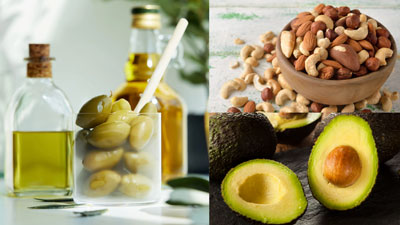
Are you team fats or team carbs? For too long, that’s how most people have been thinking of these two macro nutrients, reducing their benefits to simple sources of energy. Yet, both of these nutrients are so much more than that. And even when it comes to energy, our body sees them differently.
Fat is how our body stores its excessive energy, so that we can use it during times of need. In modern society, though, we have food available all year round, so we never need to use these stores of energy.
Fad diets might tell us that if we train our body to use fat for energy by starving it from carbs (its preferred source) this will help us burn fat. But, what if we didn’t accumulate fat at all by simply limiting our intake? Whole-food, plant-based authorities believe this is the way to go. “The fat you eat is the fat you wear,” they tell us. And starving our body from carbs, is also starving it from all the nutrients and benefits that come with whole carbs.
Health Benefits & Risks
Don’t we still need to eat fats to get other health benefits? Yes, for starters, eating fat-soluble vitamins with a healthy source of fat increases our absorption of this nutrient. But we only need a couple of nuts to accomplish this, or a sprinkle of seeds, or a slice of avocados. That’s right, the amounts we need are a lot lower than the amounts most of us consume.
Also, not all fats are the same. It’s important to minimize or stay clear of saturated fats and trans fats – from both animal-based and plant-based sources – to protect our heart and circulation, our brain, our muscles, our liver, and our metabolism. We should also limit our intake of monounsaturated fats since they don’t offer much benefit to our health and could increase our caloric intake. What we do need to eat, from whole-food, plant-based sources, are omega-3 and omega-6 fatty acids. They are both polyunsaturated fats that benefit our health, but the amount of omega-6 we need is a lot smaller than what most of us are getting, while the amount of omega-3 typically falls far below.
The Type We Need: Polyunsaturated Fats
The following two types of fatty acids are the only ones that we need to include in our diets. The ratio between them matters too. Most Americans ingest way less omega-3 fatty acids than omega-6, at a ratio of 1:20. The recommended ratio is somewhere between 1:2 and 1:4 to get more important benefits from omega 3 while avoiding the inflammatory effects of excessive omega 6.
Click on the links below to learn about the benefits of each of these fatty-acids, their sources, recommended amounts, and things to watch out for.
Omega-3 Fatty Acids
Omega-6 Fatty Acids
The Types We Don’t Need
The following three types of fats are not necessary for our well being, but they are all present in foods we typically eat, even whole foods. Identifying their tops sources and learning how they affect our body can help us make better food choices for ourselves and our loved ones.
See below for quick descriptions of these types of fats, their top sources, and their effects on our health.

Monounsaturated Fats
Monounsaturated fats do not clog our arteries or raise our LDL cholesterol, so replacing saturated fat sources like butter or coconut oil with them is a step in the right direction. That being said, one tablespoon of olive oil has about 100 calories, so limiting oils or avoiding them completely is recommended for weight management. Monounsaturated fats are found in whole-plant foods like olives, nuts, seeds and avocados. These foods also have other nutrients that are beneficial to our health, like the polyphenols in olives, or the polyunsaturated fats in nuts and avocados. For this reason, it can be good to eat these foods in moderation.

Saturated Fats
There’s no such thing as “good saturated fats.” If it’s saturated, it’s bad for our health, no matter what keto or other fad diet enthusiasts say. Saturated fats elevate our LDL cholesterol, clog our arteries, and can lead to fatal heart attacks and brain strokes. Saturated fats are also linked to Alzheimer’s disease and Parkinson’s disease. Plus, they can cause type 2 diabetes. While stirring clear of animal-based foods will eliminate some top sources of saturated fats, vegans are often getting their share with processed foods that use tropical oils like coconut and palm oil. And for those chocolate lovers out there, keep in mind that cocoa butter is saturated fat as well.

Trans Fats
Fortunately, the artificially-made trans fats that for too long were part of the Standard American Diet in foods like margarine or shortening have been banned in the U.S. since 2023. But we can still get trans fats occurring naturally in animal-based foods, like beef and dairy. Also, certain oils like corn oil turn into trans fat when over heated, so deep-fried foods like french fries, doughnuts, and multiple processed frozen foods, still contain trans fats. All trans fats elevate LDL cholesterol while lowering HDL cholesterol in our blood, posing a high risk to our heart health. Eliminating animal-based foods and processed-foods can help keep them out of our diets.
References


